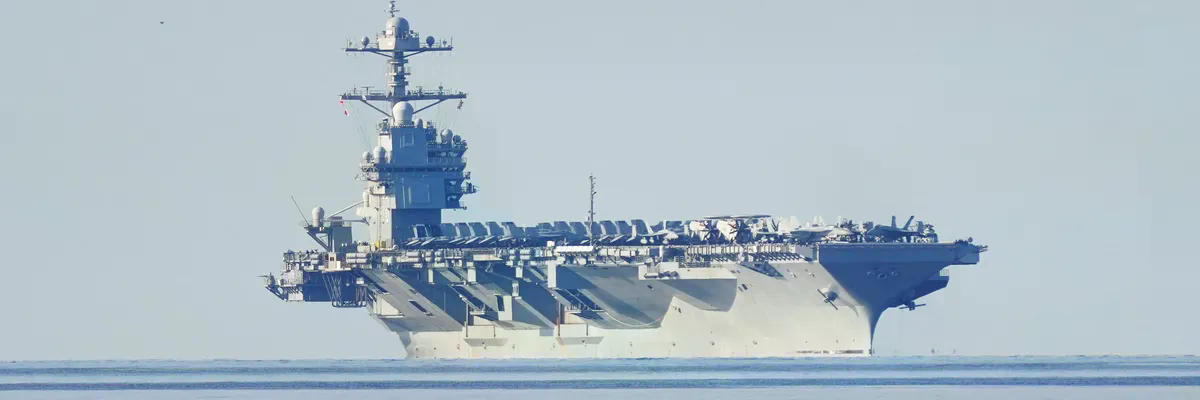
The Gerald R. Ford Carrier Strike Group, which includes the largest warship in the world, has been ordered to waters off the coast of Venezuela, marking a significant military escalation following a recent surge of extrajudicial boat bombings in the region. This move comes amid ongoing controversy over the administration’s actions and their justification.
In a statement, the administration said that Defense Secretary Pete Hegseth directed the strike group and its air wing to the US Southern Command “in support of the president’s directive to dismantle transnational criminal organizations (TCOs) and counter narco-terrorism in defense of the homeland.” The announcement followed the administration’s 10th reported strike on what it described as a drug-running boat, resulting in the deaths of six individuals and raising the death toll from these operations to 43. However, the claims have been met with skepticism due to a lack of substantial evidence.
Recent events have further cast doubt on the narrative that these boats are engaged in drug trafficking. Two survivors of a previous strike, identified as alleged “narco-traffickers,” were released back to their home countries. One of them, an Ecuadoran man, was set free after officials found no evidence to charge him. In other cases, families and governments of those killed have disputed the administration’s claims, asserting that the victims were not drug smugglers but fishermen.
The strikes have drawn increasing criticism from both Democratic and Republican lawmakers. Senators Rand Paul (Ky.) and Lisa Murkowski (Alaska) introduced a war powers resolution last week, calling for congressional approval before any acts of war against Venezuela are carried out. Additionally, a group of former national security officials, including Rear Adm. Bill Baumgartner of the Coast Guard and Retired Navy Rear Adm. Michael Smith, issued a statement condemning the strikes as “illegal” and “ineffective.”
The International Crisis Group, a non-governmental organization focused on preventing armed conflict, warned that the campaign, initially framed as targeting drug trafficking, appears to be evolving into an effort to remove Venezuelan President Nicolás Maduro and his allies from power. Reports suggest that Caracas may have proposed agreements allowing the U.S. to gain a dominant stake in Venezuela’s oil and mineral resources.
President Donald Trump’s deployment of the Gerald R. Ford strike group, currently en route from the Mediterranean Sea, follows his earlier threat to conduct strikes on the Venezuelan mainland without congressional authorization. This has prompted dozens of elected officials across Latin America to issue a letter condemning the potential for military aggression in the region.
The leaders warned that the administration is planning a new “War on Drugs,” which could begin with regime change in Venezuela but risk extending to other parts of the region. They expressed concern over the potential for illegal drone strikes on Mexican soil under the guise of national security, warning that such actions could trigger a broader wave of armed interventions and a severe humanitarian crisis.
Celso Amorim, an aide to Brazilian President Luiz Inacio Lula da Silva, stated that outside intervention in Venezuela would provoke significant resentment and could lead to political radicalization across South America. He emphasized the need for regional stability and caution against further military escalation.


